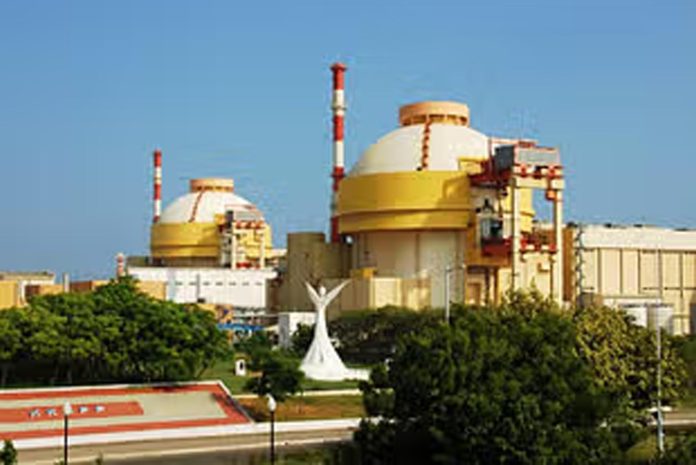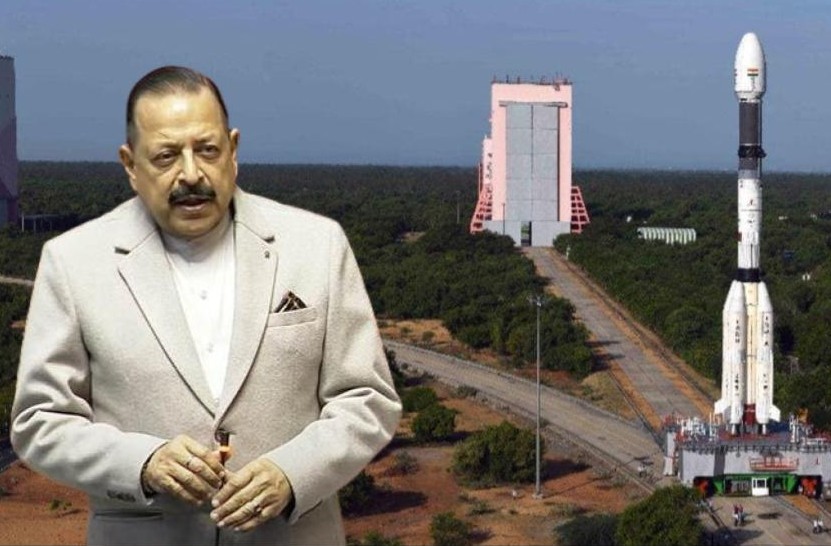India Strengthens Closed Fuel Cycle Strategy for Long-Term Nuclear Energy Security: Govt

New Delhi, August 7: India continues to advance its closed nuclear fuel cycle programme to maximize the utilization of its limited uranium resources and tap into its vast thorium reserves, the government informed the Lok Sabha on Wednesday.
In a written reply, Union Minister Dr Jitendra Singh said that the country’s three-stage nuclear power programme is designed to ensure long-term energy security through the recycling of fissile and fertile material from spent nuclear fuel (SNF), rather than disposing of it as waste. This closed cycle approach not only improves resource utilization but also significantly reduces high-level radioactive waste.
The programme begins with domestic uranium used in Pressurised Heavy Water Reactors (PHWRs), followed by the reprocessing of spent fuel to extract plutonium for use in Fast Breeder Reactors (FBRs). In the third stage, India aims to exploit its large thorium reserves by breeding Uranium-233 from Thorium-232, which will serve as fuel for advanced reactors.
Key Developments and Achievements:
- Fast Breeder Test Reactor and associated facilities have been established to support the second stage of the programme, with the Prototype Fast Breeder Reactor (PFBR) and an integrated reprocessing plant under construction at Kalpakkam.
- Thorium-based research continues to be a high priority. Thoria (Thorium Oxide) fuel bundles have been used in PHWRs, and irradiated fuels have undergone extensive post-irradiation studies at BARC.
- Uranium-233, recovered from reprocessed Thoria pins, is being used as fuel in the 30kW KAMINI reactor, operational at IGCAR, Kalpakkam — the only reactor in the world using U-233.
- Technologies for fabricating Thoria-based fuel pellets with Uranium-233 have been successfully developed at the lab scale.
Uranium and Thorium Resource Status:
The Uranium Corporation of India Ltd. (UCIL) continues to expand mining and processing capabilities to meet fuel demands. Meanwhile, the Atomic Minerals Directorate for Exploration and Research (AMD) is actively exploring and augmenting uranium and thorium resources using advanced geological and geophysical technologies.
- Uranium: As of now, AMD has established 4,33,800 tonnes of in-situ U₃O₈ resources across 47 deposits in states including Andhra Pradesh, Telangana, Jharkhand, Meghalaya, and Rajasthan.
- Thorium: India holds 1.18 million tonnes of thorium oxide (ThO₂) resources contained in 13.15 million tonnes of monazite, primarily found in coastal deposits across Kerala, Tamil Nadu, Odisha, and Andhra Pradesh.
Additionally, 29,900 tonnes of in-situ thorium oxide in hard rock formations have been identified in Gujarat.
The government reaffirmed that this robust closed fuel cycle strategy is key to India’s ambition of achieving energy independence and sustainability through indigenous nuclear capabilities.







